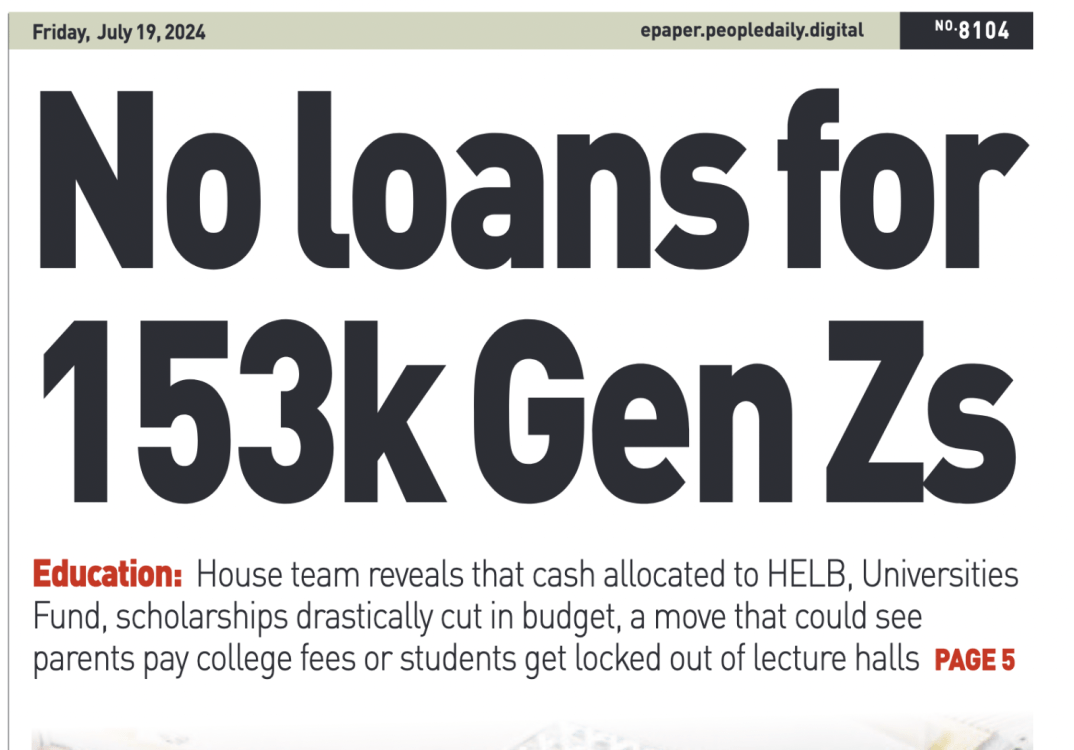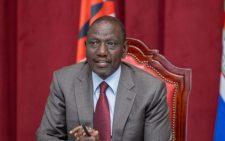Why 150,000 students could miss varsity slots

About 153,292 students set to join universities beginning September are likely to miss out after monies meant for loans and scholarships was reduced following the withdrawal of the Finance Bill.
Documents tabled before the education Committee shows that despite the said vote having a shortfall of Sh22.9 billion required to sustain the learners in the Universities, the budget for Higher Education Loans Board (HELB) that had initially been allocated Sh31.9 billion in the estimates has been reduced by Sh710 million while monies meant for Universities Fund (UF) for scholarships has been reduced by Sh2.6 billion from the initial Sh19.6 billion.
Higher Education Principal Secretary Beatrice Inyang’ala told MPs that the cuts will affect learning in the universities should they not be reinstated.
Reads the document: “Higher Education Loans Board (HELB) and Universities Fund were allocated Sh31,895 and Sh19,553 million respectively in financial year 2023/2024 for funding year 1-6 student loans and scholarships under the student-centred model.”
It adds: “This leaves a total of 153, 292 year 1 students (KCSE 2023 candidates) who were placed by Kenya Universities and Colleges Central Placement Services (KUCCPS) in universities inadequately funded. The students are due to report to their respective universities in September 2024. The resultant deficit for the Financial year 20204/2025 printed estimates is Sh22,897 million.”
The inadequate funding comes at a time when questions have emerged over the new funding model which many have claimed is not sustainable.
Under the new model, students from families whose income is below Sh5,995 will enjoy 95 per cent of government financing as compared to those whose household income is in excess of Sh120,000 as they will only get 60 per cent of government support in the new university financing model.
Government funding
Those whose income ranges between Sh5,995 to Sh23,670 and will enjoy 90 per cent government funding, those whose income ranges between Sh23,671 and Sh70,000 will get 80 per cent of government funding while those whose income is between Sh70,001 and Sh119, 999 will get 70 per cent of government funding.
Accompanied by various heads of department in the sector, Inyang’ala also raised concerns that continuing students in the universities will also be affected as the budget for them has also been slashed.
She explained that the current allocation for the Differentiated Unit Cost (DUC) funding for the continuing students is only Sh23 billion which represents 38.75 per cent, way below the ideal funding level of 80 per cent.
Inyang’ala also regretted that ongoing government sponsored students in Private Universities risks not completing their studies as the budget for the said vote has been reduced by Sh1.8 billion from an initial Sh2.3 billion to the current Sh574.8 million.
The students are currently being funded at 10 per cent DUC level.
The said reductions for the continuing students in private universities, she said will have a devastating impact on their ability to continue with their studies, leading to an increase in student drop out.
Those who will be most affected include students from low income backgrounds or those with financial constraints who may not have alternative sources of funding to fall back on.
She said: “With reduced funds, students may struggle to cover the increased costs of tuition fees, living expenses and other essential student services, making it impossible for them to sustain their academic pursuits.”
State against citizens
She also raised concerns that the budget for open university has been reduced by Sh200 million thus crippling the functions of the universities while the entire Sh3.2 billion meant for development projects had been reduced to zero.
And immediately she was done, MPs present took issue with the cuts where they accused the National Treasury of setting up the government against its citizens.
Led by Melly, the lawmakers took on National Treasury Representative Nehemia Odero who had admitted that they did not engage in any form of consultations with the department before the deductions were done.










